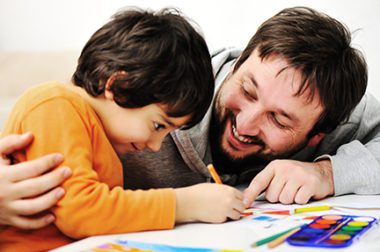Living overseas for five years forced me to move quickly from “oh, no way! I could never teach my own kid” to becoming a homeschool mom in a matter of months. So, recently, when schools began to shut down because of the COVID-19 pandemic, friends turned to me for advice on homeschooling and how to get through these new challenges. Afraid and often with very little confidence, they felt as though they alone were now responsible for their children’s education, and they didn’t necessarily feel up to the task.


Wait, what? Really? What do parents think is going to happen in June that will suddenly make things easier? The kids will still be there, they will still be bored, they will still interrupt work meetings, and they won’t even have the worksheets, the Zoom classes, and the school projects to preoccupy them for even the few hours they do now.
Use this time to teach our children about life
We parents need to figure out how we can use this time during the pandemic to teach our children about life: How to teach them curiosity. How to teach them to want to learn. How to teach them to keep going when things are tough. How to teach them to adjust when life doesn’t go as planned. How important their role is in the home no matter what the family dynamics are or how young or old they are.
Teach our kids—and ourselves—to accept the situation. Our child’s learning routine will now be different. It will not be the same as “normal” school, nor should it be. We are going through a pandemic—a life-altering, economy-shattering, home-sheltering pandemic, and everyone, especially the adults, can use some guidance.
Here is the advice I gave my friends and now offer to you:


Have you and your kids and maybe your spouse EVER had several weeks at home when all of you were granted guilt-free permission to slow down, to be together, to have no other commitments to rush off to? Probably not, so embrace this time!
Do not freak out!
When I homeschooled my daughter, we were usually done with our lessons by noon. So, finish the e-learning that your teachers assign, and then find other ways to teach your kids about life—through “home economics” and other enriching experiences.
Teach them about life.
Bake things from scratch and make dinners together; incorporate math, creativity, and the use of their senses while teaching them skills they need to learn to survive. Not to mention, you may find a new meal the kids will eat.
Teach them skills.
- Teach them to sew and fix that hole in the pillow or sew that button that fell off months ago.
- Teach them how to do their laundry, how to iron, how to screw in all those loose screws on your kitchen cabinet doors—the options are endless.
Teach them responsibility.
Teach them to clean and organize their rooms, their closets, and garage.
Teach them about the significance of this pandemic and how rare it is.
Teach them the importance of taking care of themselves, their home, and their body because you never know when day-to-day life circumstances may change and they may need to rely more on themselves.
Teach them to care.
- Make cards to send to those in nursing homes that can’t have visitors.
- Check on elderly neighbors.
- Sew masks for the community members and frontline heroes.
- FaceTime all those relatives that you normally don’t have time to connect with.
Teach them to share.
Hold a virtual sale. After they go through their items, decide which ones they can part with. Teach them about the value of those items. What is the value after they have been used? How much do they think they can sell them for? Take pictures, post them on Facebook, moms’ groups, and other sites, and as the items are sold, leave them on your porch for pick-up. When the money comes in, talk about percentages, taxes, employee wages, and other personal finance topics as appropriate to their age.
Teach them to think critically.
Find a documentary on how a restaurant started, and then explain how a pandemic would affect that place of business. What will happen with the economy? Teach them about supply and demand. Why are we out of toilet paper? Can they think of other items that may be important for us to stock up on? Why might there be a meat shortage? Look to history, and ask how they think people survived when similar things happened in the past. Read and learn about it together.


Teachers, I applaud you.
With this being said, teachers, I applaud you. You have done amazing things: learning new technologies, discovering how to create and share worksheets online, coming together to learn and utilize the same communication platforms, making daily videos so our kids can see your faces and feel they are still a part of their school community. You have taken on an entirely different path of teaching, demonstrating perseverance, dedication, leadership, fearlessness, and determination to all of our children, and we are grateful.


Below are some resources that may be helpful in continuing the teamwork between teachers and parents.
- Using chores to help with learning: https://happyteachermama.com/why-your-child-needs-to-complete-chores/
- Learning through experiences: https://learningthroughexperiences.com/passion-for-learning/
- Incorporating life skills: https://aberlehome.com/ten-important-life-skills-to-add-to-your-homeschool/?utm_medium=social&utm_source=pinterest&utm_campaign=tailwind_tribes&utm_content=tribes&utm_term=1009279266_43683516_264899

